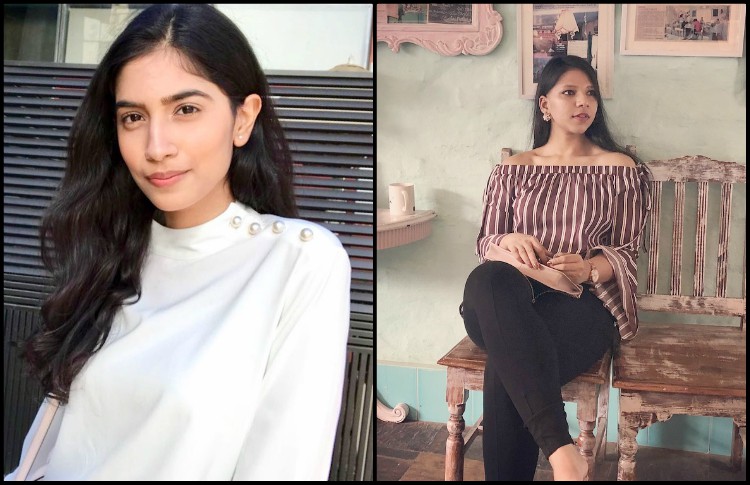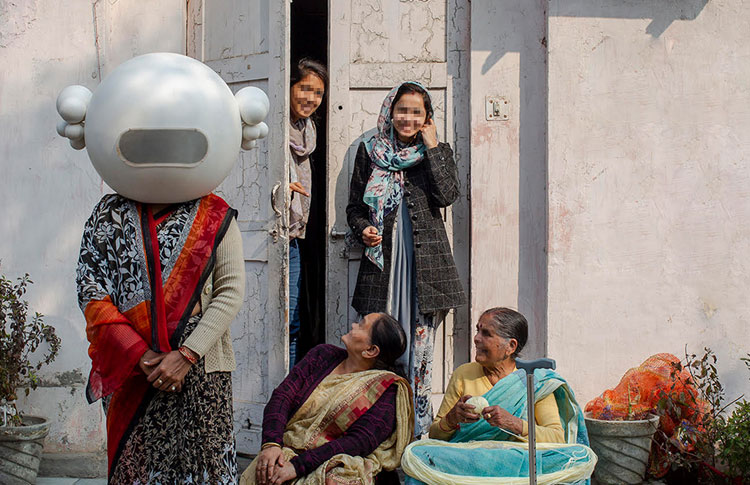2 LSR Students On Creating A Safe Space For Indian Youth To Talk About Mental Health Issues And Acceptance
- IWB Post
- October 10, 2019

Mental Health. Two words that cause a room to go from deafeningly loud to pin drop silence in flat 0.3 seconds.
The subject of mental health is still considered a taboo in our society, that is, on the rare occasions when it’s discussed. Hence there isn’t much awareness about these issues amongst the general population.
Conversations are gradually increasing, as with all new movements the change is primarily amongst youngsters, and rightly so because the youth is the most affected demographic. According to an article published in India Today, a study conducted by WHO states that India is the world’s most depressed country, followed by China and the US.
In such a scenario, two young students of Lady Shri Ram College for Women, Bani Singh and Drishti Gupta, have taken it upon themselves to combat the stigma and provide a safe space for individuals with mental health issues to share their stories amongst peers.
Now & Me, their website, is “a community of everyday people, who may have had similar experiences, who can reassure each other that it’s going to be okay, and if not now then eventually.”
In a recent interview with IWB, Drishti and Bani spoke about their website, the importance of safe spaces and ways to best help individuals dealing with these issues.
Here are the excerpts:
Mental Health is an issue that is considered a taboo in our society, even now when the conversation around it is gradually increasing. What made both of you so passionate about mental health?
BANI – My mother wanted to create a platform where people could talk about their failures because everyone’s really talking about their success and how great everything is on social media. I got to thinking and said, mama why should we just restrict it to failures in terms of relationships or work. Sometimes in a day some things go wrong or don’t go as per plan and that’s like failure to each one of us. And that’s how it sort of developed more and that’s how I started.
DRISHTI – I have basically been a very strong proponent of physical fitness but then I realized the importance of mental fitness as well because sometimes the weight that you’ve got to lose is not on the body. There are so many struggles and issues that people go through, which they don’t really talk about and they can’t do that on social media, because on social media everybody’s just pretending to be someone they’re not right.
On this platform, we thought that we could provide people with a space where they can talk about things filter-free. Like Instagram is all about filters, right, but we wanted a platform where people can be filter-free, they can be true to themselves, their values, their opinions, whatever they’re going through and can put it out there without feeling judged about it.
It’s not often that we come across a person or a platform where we can share our concerns about mental health without being judged. Can you tell me more about how have you ensured that your website is that safe place?
BANI – To answer this question, one of the foremost things, when we were developing this, is to give people the option of anonymity. Firstly the coming and wanting to talk about it is a big step towards improvement or opening up. And the option to do so without revealing their identity really helps individuals freely talk about their issues without worrying about what will happen if someone finds out, or if they face any judgment or backlash.
Your website offers a platform to those willing to reach out. But even today not a lot of people do, probably because of the stigma attached to mental illnesses. What ways would you suggest to encourage people to reach out and seek help?
DRISHTI – So we feel that firstly people need to be really made aware of why it’s important to come up and share their feelings, because there comes a point in your life where you keep so many things bottled up that you start to become numb, you don’t feel anything because you’ve bottled up things that have happened in your childhood and you don’t come out of it. And then we’re providing them with the means to do it anonymously because sometimes they don’t want to reveal their identity because they feel they will be judged.
One more thing, so, as you asked to encourage people to come out and speak, so we want to make them feel they’re not talking to any specialists over here, they’re just talking to people who might have gone through similar situations, and experience because you know, Ishita, everybody out here in this generation is just looking for validation, so that’s what we want to provide, you come, you share, you talk to people who have gone through similar kinds of things so that you feel that no I’m not alone.
People suffering from mental health issues already have a lot going on internally, the people around them may not know the best way to approach them in a way that’s comforting and doesn’t add to their worries. What would you suggest friends and family do to help them and approach them in a way that is not insensitive?
BANI – The first thing to do if you get to know that someone really close to you is having a hard time or going through something is to let them know first and foremost that ‘I may not understand what you’re going through but I’m here for you’. Don’t make a big deal about it or think that everything has gone wrong, just like for any other illness, try to seek corrective measures. I think there is a very major sort of lack of information and knowledge on how to be sensitive about such things and your actions really matter.
DRISHTI – And the most important thing is to not compare the person’s stress levels and tell them “You’ve not gone through anything, look at that other person going through so many more things”, because the validation of stress does not stem from the magnitude of it. Also rather than sympathizing with them we need to empathize with them, we need to put ourselves in their shoes and let them know that we are there for them.
Yours is a platform for people to find support and empathy from others with the same experiences, can you tell me about one of the stories on your website that has had the most impact on the readers and the writer as well?
DRISHTI – So there was one anonymous response we got, a story of a guy who was going through so many things and wrote a very long post, it took me around, I think 10-15 minutes to read the entire post, he started from his childhood, the things he’d been bottling up since childhood and right now he’s working. He’s written everything and ended it by saying that a place like this (the website) is where he can come and write his feelings because nobody is interrupting his words over here. He had been so bottled up for so many years he finally found an outlet, a safe space like this and that gave him a sense of comfort.
BANI – And since it was so personal and so heartfelt that the community, Drishti, and I were very engaged in this conversation and through the process of sending positive messages and interacting, somewhere we became friends. We’ve formed this bond without really knowing the person and it’s a really beautiful sort of connection that we’ve made and we’re very grateful as moderators of the website to have gotten the opportunity to connect with someone like that.
DRISHTI – What compels us to engage with them is a genuine feeling, I think it comes very naturally to us to connect with people, to hear their stories, and tell them something from our lives. It’s a learning experience for us as well.
A message you want to convey to our readers?
DRISHTI – We’d just like to say that on social media you can’t be filter-free, you can’t be yourself, so we just urge everybody to take some time off social media to check in with themselves and actually get to know more about themselves, self reflect and introspect about their feeling and then let it out.
BANI – Don’t get worked up looking at other people’s lives, which are honestly so fabricated that the bloggers themselves call it out and tell everyone that this is not what real life looks like. Don’t get affected by and know that their life is equally meaningful and beautiful. We hope that they find someone they can confide in and let go of whatever is bothering them, that’s what we really hope for everyone, to feel lighter and stress-free.
Despite these alarming statistics, not much has been done to address the mental health crisis that India is facing and the stigma remains firmly attached to the phrase. As Drishti and Bani go on to add, countries like Spain and Scotland have Ministries of Mental Health but the government in our country hasn’t taken up the initiative on this issue, despite the President mentioning it. While accumulating data about suicide helplines, they tried contacting the national emergency number of India, and their call just didn’t go through despite trying for 10 days straight.
Bani says, “And imagine someone in that state where they really need genuine support and they’re calling up someone, how would that make them feel when they are trying to reach out to someone but nobody even picks up the call. I think that’s a very sorry and sad state of affairs. Unfortunately, mental health isn’t prioritized much in our country although the president really talks about the importance of it; we still haven’t been able to mobilize that.
- 0
- 0













